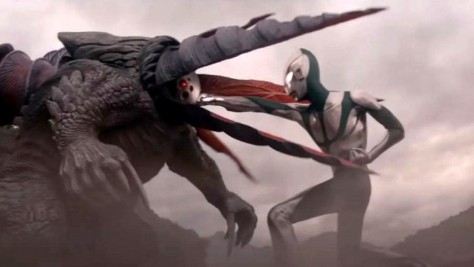
Shin Godzilla proved to be a bit of an inflection point for tokusatsu cinema, and its success gave director Hideaki Anno and effects director Shinji Higuchi, both veterans of the field in one way or another (the latter having worked on the Shusuke Kaneko Gamera trilogy), the keys to some of the most influential franchises of the form. They’ve ended up using the “Shin” moniker to denote all their creations as one loosely connected meta-series, but just how connected would these subsequent reboots be? Shin Ultraman, the first of the follow-ups out of the gate, provides a surprisingly complicated answer. Directed by Higuchi and written by Anno, this new version of Tsuburaya Productions’ signature kaiju vehicle inherits some of Shin Godzilla‘s aesthetic preoccupations (and a few of the thematic ones), but is not really aiming for the same apocalyptic feeling—in keeping with the general tone of the material it’s based on, this is a lighter affair that is less focused on re-imagining its monster action to fit modern anxieties, but rather transplants much of the original vision of Ultraman into a modern setting and sees how it plays out. That allows them to be more openly fannish in the number of callbacks to the original series they include, some going so deep as to be based in the details of the series’ production, but the most surprising thing about that is just how invested they are in really examining the ideas present in the original.




